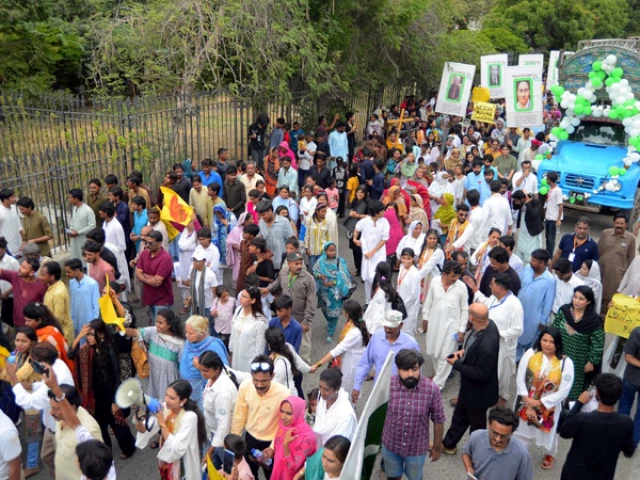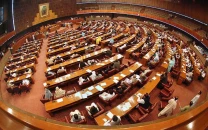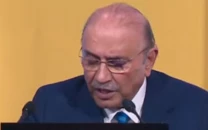Minority Rights March in Karachi demands legal reforms, inclusivity
Civil society, community leaders and activists unite to press govt for safeguards against discrimination

Civil society activists, religious leaders, and community representatives staged a Minority Rights March in Karachi on Sunday to mark National Minorities Day, calling for constitutional reforms, legal safeguards, and equal rights for all citizens.
The rally, which started from the YMCA Ground and culminated outside the Sindh Assembly building, was joined by members of the Christian, Hindu, and Sikh communities, transgender persons, women's groups, professionals, and rights activists.
It was led by Pastor Ghazala Shafiq, Najma Maheshwari, Ram Singh, Bhevish Kumar, Janet Kumar, Lovek Victor, and Bindiya Rana. A decorated truck displaying the marchers' demands accompanied the procession.
Some glimpses from #MinorityRightsMarch2025 ✊ pic.twitter.com/cGSnHPXYzJ
— Minority Rights March (@aqliyatihuqooq) August 10, 2025
Speakers said that Pakistan has been officially observing August 11 as National Minorities Day since 2009, yet minority communities still face discrimination, denial of basic facilities, and the menace of forced religious conversions.
The march's charter of demands included a minimum 10% quota for minority students in all educational institutions, removal of discriminatory content from textbooks, constitutional recognition of minorities' distinct identity, protection of places of worship and properties, criminalisation of forced conversions, amendments to personal laws, and revision of Articles 41 and 91 of the Constitution to allow minorities to contest for the offices of President and Prime Minister.
Some glimpses from #MinorityRightsMarch2025 ✊ pic.twitter.com/HUDI5bYg6A
— Minority Rights March (@aqliyatihuqooq) August 10, 2025
It also sought greater political representation at federal, provincial, and local levels, measures for economic empowerment, protection against misuse of religious laws, and inclusion of minorities in policymaking.
Organisers described the march as an independent platform uniting minority groups and civil society to work for a pluralistic society. They urged citizens of all faiths, beliefs, and backgrounds to join their peaceful struggle.
The participants later submitted their demands to the Sindh Assembly and Sindh High Court through symbolic performances and artistic presentations, pressing the government to take concrete steps to safeguard minority rights.






















COMMENTS
Comments are moderated and generally will be posted if they are on-topic and not abusive.
For more information, please see our Comments FAQ